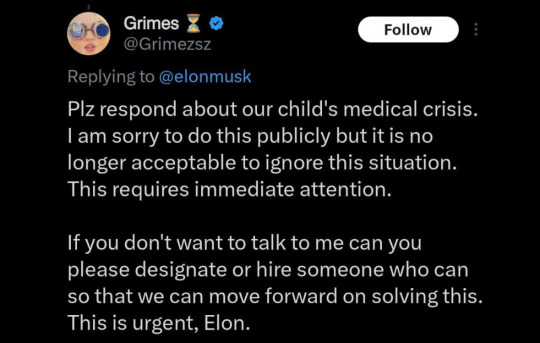#trump wealth inequality
Explore tagged Tumblr posts
Text

#solar energy#green energy#bernie sanders#politics#us politics#political#donald trump#news#president trump#elon musk#american politics#jd vance#law#democracy#democrats#money saving#middle class wealth#wealth inequity#wealth redistribution#wealth inequality#wealth#republican#republicans#lawmakers#government#late stage capitalism#political influence#project 2025#melania#don jr
15K notes
·
View notes
Text

3K notes
·
View notes
Text

A) Luigi is innocent until proven guilty. B) Even then he's innocent because this is an astoundingly clear frame-up. C) It is amazing that the CEO Shooter saved a bunch of lives by boldly putting fear into the hearts of insurance executives everywhere. That's where fear belongs, not in the people stuck at the mercy of insurance companies, but in the hearts and minds of every CEO--people are powerful, and they will rise up in a torrent of beauty and blood if you push them too far.
#luigi mangione#ceo down#luigi is innocent#free luigi#corporate greed#eat the rich#fuck trump#wealth inequality#tax the rich#oligarchy
437 notes
·
View notes
Text





















Buckle up and start stocking up on your canned (cat) food, folks, because we're really Making America Great Again™ now.....
#politics#the left#economics#great depression#trump#fuck elon#tarrifs#economy#long post#capitalism#late capitalism#wealth inequity#inequality
399 notes
·
View notes
Text
What a shame it was when the “conservative” (not sure exactly what they conserve honestly) sect of American society chose a, we’ll call it, unconventional candidate in 2016, the progressive sect also had an unconventional candidate (unconventional in a not insane or malignant narcissist kinda way like the rights candidate though) as well.
The difference is, the right let their self absorbed, racist, batsh*t crazy, compulsive liar win the nomination. The left, they felt a Jewish man with socialist tendencies was too extreme and went with a candidate who could be the very definition of the establishment.
How did that turn out?…….
Bernie Sanders has been fighting for the working class for decades! A no nonsense, straight shooter with fabulous sarcasm. Just dry, subtle and absolutely amazing cynicism.
In this speech he points out some good figures. Hey maga! Listen up because y’all keep defending this sh*t instead of your fellow working class Americans or the Constitution overall.
Elon musk possesses more wealth than the bottom 52% of the American earners. More than likely that’s the vast majority of maga, I know I’m included in that bottom 52%, as are many who have the misfortune of reading this.
The top 1% of American “earners” possess more than the bottom 93% of the Americans workers. I can say with certainty that is anyone reading this. That’s fkn CRAZY!!
While 60% of us are living paycheck to paycheck, just a handful of people own all but 7% of the available capital.
You gotta look at it like this. There’s only a certain amount of money to be made in the U.S. If there was an infinite amount, the dollar would be worthless. Let’s break it down into hundreds. There’s a hundred bucks to split between one hundred people. One guy gets $93 and the other 99 of us split $7.
I think the top 10% can pay a higher percentage than the 40% tax rate 93% of us do.
Call me crazy. Call me dumb. But they can afford to pitch in more to our country. 🇺🇸
#bernie sanders#oligarchy#wealth inequality#wealth#elon musk#fuck elon musk#trump is a threat to democracy#politics#traitor trump#donald trump#republicans#democracy#freedom#free speech#u.s. senate#u.s. house of representatives#reconciliation#crooked donald#trump crime family#trump is a criminal#war on the american worker#no kings#impeach trump#imperial presidency#resist#we the people#stop trump#maga morons#maga traitors#maga
286 notes
·
View notes
Text
Saw some folks on reddit are boycotting Zuckerberg. You should too.

#economy#politics#us politics#Trump#fuck trump#Facebook#the 1%#wealth inequality#socialism#idk what to tag this as just spread it
209 notes
·
View notes
Text
The corruption is just smashed in your face every fucking day. I guarantee some maga knucklehead will try his/her hardest to justify this. Somebody in the comment section of another video I saw yesterday said the White House is now paid to play.
instagram
#trump corruption#fuck trump#the white house is pay to play#trump cult#trump#republicans#fuck maga#fuck elon musk#elon musk#wealth inequality#tax the rich#eat the rich#Instagram
50 notes
·
View notes
Text

Please ensure Senator McConnell is entombed with Mr. Burns' will
#donald trump#billionaires#senators#corruption#late stage capitalism#political#satire#american politics#dark humor#wealth inequality#oligarchy#pharaoh vibes#funny#tumblr humor#meme#viral#text post#lol#relatable#twitter#x#screenshot#social media
43 notes
·
View notes
Text

New data shows that the majority of Americans cannot afford the cost of basics needed for a stable life.
In 2023, the bottom 60% of income earners brought in an average of $38,000, but needed to make $67,000 to afford the average cost of housing, food, transportation, and healthcare.
How does one of the richest countries in the world have this much of our population struggling to cover the cost of basics?
The US has the greatest income inequality out of any developed nation and this gap will only continue to grow if things don’t change. Especially now with the Republican budget that aims to cut programs that millions of Americans rely on like Medicaid and SNAP all to help pay for huge tax cuts for the wealthiest. This will be the largest transfer of wealth in American history.
Read more about the study and sources for this information on my Substack.

#art#artists on tumblr#illustration#comic artist#art of the day#comic art#political art#political cartoon#art is political#us politics#us economy#wealth inequality#donald trump#republican budget#big beautiful bill#eat the rich
48 notes
·
View notes
Text
The First Amendment: Free Speech
The fact that an administration can pinpoint a student, a student who is a legal citizen of this country ineligible for deportation, and attempt to deport him simply based on his difference of opinion, should terrify all Americans, regardless of party.
The deportation of Mahmoud Khalil is illegal and unconstitutional. We must collectively understand that it isn't about deporting an undocumented immigrant, or an ICE crackdown. It is the attempted REVOKING of legal citizenship. If they can do this to one person, they can do this to all of us, simply based off of an expression of free speech.
Mahmoud is missing. ICE didn't seem to know his paperwork, and the location where his wife, an American citizen, was told he was, does not know where he is. He was last detained by ICE and American law enforcement.
The U.S Government has detained and dissapeared a United States citizen and all of us, politicians alike, are helpless to do anything about it.
Call your reps. Demand answers. If you can, volunteer, donate to the ACLU. Message me for opportunities to get involved. We must stand together.
#fuck capitalism#billionaire#2024 presidential election#billionaires#america#kamala harris#anti capitalism#activism#politics#gen z#trump administration#fuck trump#wealth inequality#what the fuck#election 2024#current events#republicans#the left#youth#trump is unfit#oppression#progressive#high school#student#aydintariq#mahmoud khalil
46 notes
·
View notes
Text
Education
#department of education#children#education#educate yourself#educate yourselves#republicans#republican lies#right wing extremism#right wing politics#right wing terrorism#vote democrat#vote blue#vote kamala#kamala 2024#kamala harris#2024 presidential election#donald trump#democrats#politics#vote harris#please vote#black lives matter#they are coming for your children#blacklivesmatter#black children#maga#wealth inequality#black wealth
64 notes
·
View notes
Text




#politics#us politics#political#donald trump#news#president trump#elon musk#american politics#jd vance#law#mothers#support#republicans#republican#wealth inequity#wealth redistribution#wealth inequality#elon#musk#us news#tesla#white supremisist#swasticars#twitter#x#childcare#abandonment#maga#make america great again#conservatives
8K notes
·
View notes
Text

Trump: morally repugnant, as always.
#fuck trump#trump#wealth inequality#maga morons#tax the rich#fuck musk#elon musk#republican corruption
2K notes
·
View notes
Text

Donald Trump, working class hero
#politics#us politics#progressive#donald trump#united states#america#american politics#trump#class war#charles schwab#working class#tariffs#stock market#maga#make america great again#eat the rich#wealth inequality#more perfect union#billionaires should not exist
29 notes
·
View notes
Text
So, the Luigi Mangione situation has been consuming my thoughts for days. Honestly, I’m surprised to see even those who typically consume right-wing media starting to connect the dots.
Kyle Rittenhouse was hailed as an “American patriot” and a “hero” by right-wing media like Fox and co, not because they’re anti-establishment but because they blindly support the establishment. After his acquittal, conservative media framed his actions as self-defence, the ultimate embodiment of “law and order.” But let’s be honest—this wasn’t about justice or morality. It was about doubling down on a toxic gun culture, one that upholds violence as a virtue when it aligns with their politics.
Take Donald Trump, for example. He’s their golden boy, the so-called saviour of the working class, but what did he actually do for anyone struggling to make ends meet? He gave billionaires a massive tax break, slashing corporate rates to 21% and leaving crumbs for everyone else. Universal healthcare? Forget it. Trump spent years trying to dismantle the Affordable Care Act without even pretending to offer an alternative. And wages? They stagnated while he bragged about a booming economy. He couldn’t stop talking about low petrol prices—as if that fixes lives ruined by medical debt or the soaring cost of living. Meanwhile, his obsession with fracking wasn’t about energy independence; it was about making oil companies richer.
Trump’s entire existence is proof that capitalism rewards incompetence if you’re born into the right family. He’s failed at business after business, but the money and connections always find their way back to him, bringing power along for the ride.
Now compare that to someone like Luigi Mangione. Here’s a guy from a privileged background—an Ivy League graduate, no less—who allegedly assassinated UnitedHealthcare’s CEO, Brian Thompson. And why? Because Mangione had seen enough of the system Thompson profited from: a healthcare industry that lets people die while executives rake in bonuses. Mangione reportedly left behind a manifesto condemning health insurance companies for putting profits over people. Even Daily Mail readers, who’d normally back the establishment, are expressing sympathy for him and calling out billionaires. When even the most propagandised audiences are waking up, you know something’s wrong.
This isn’t complicated: poverty kills. Debt kills. And billionaires like Thompson—who faced criticism for policies that punished patients seeking emergency care—are perfectly comfortable profiting off that suffering. They sit in their towers, insulated from the consequences of the system they exploit, while working-class people are forced to choose between survival and dignity.
What billionaires should really fear is us realising we’ve been played. For decades, they’ve worked to convince us our biggest threats are each other—minorities, immigrants, anyone but them—when they’re the ones pulling the strings. Without our labour and endless, soul-crushing consumption, they’re nothing.
Do I feel bad for a billionaire who’s scared? Not in the slightest. They don’t know fear the way we do. They don’t have to worry about eviction notices or medical bills. They’ve convinced us their success is aspirational, but it’s all a con—a rigged game that keeps them on top no matter what.
I hope the Luigi Mangione case sparks a backlash they can’t ignore. I hope it forces people to confront how deeply this system has failed us. The media will try to spin it, of course. They’re already working to humanise people like Thompson, men who built their careers on denying claims and leaving sick people to fend for themselves. Meanwhile, these same journalists won’t write about kids being pushed into poverty or the way empathy disappears when a rapist gets elected to office. It’s so absurd it feels like a cruel joke—like we’re being manipulated for laughs as reason abandons our collective psyche.
People have turned this murder into a meme, and they’re being condemned for it. But billionaires, propped up by the likes of Murdoch, have relied on our desensitisation for decades to amass wealth and control political narratives. The internet makes that harder for them now, and they know it.
And people are tired. We misdirect our anger into the wrong places, often at each other, and can you blame us? What have protests actually accomplished lately? Millions marched for Palestine—one of the largest demonstrations in recent memory—but did it stop the US or UK from backing Netanyahu? Of course not.
So where do they think all this frustration is going to go? Because one day, it’s going to boil over—and no amount of money or media spin will protect them.
#billionaires#capitalism#poverty#wealth inequality#social justice#politics#economic justice#kyle rittenhouse#luigi mangione#brian thompson#donald trump#why is this my first post lol having a crisis so bad i needed to write on tumblr for the first time in years
36 notes
·
View notes
Text
What a shame it was when the “conservative” (not sure exactly what they conserve honestly) sect of American society chose a, we’ll call it, unconventional candidate in 2016, the progressive sect also had an unconventional candidate (unconventional in a not insane or malignant narcissist kinda way like the rights candidate though) as well.
The difference is, the right let their self absorbed, racist, batsh*t crazy, compulsive liar win the nomination. The left, they felt a Jewish man with socialist tendencies was too extreme and went with a candidate who could be the very definition of the establishment.
How did that turn out?…….
Bernie Sanders has been fighting for the working class for decades! A no nonsense, straight shooter with fabulous sarcasm. Just dry, subtle and absolutely amazing cynicism.
In this speech he points out some good figures. Hey maga! Listen up because y’all keep defending this sh*t instead of your fellow working class Americans or the Constitution overall.
Elon musk possesses more wealth than the bottom 52% of the American earners. More than likely that’s the vast majority of maga, I know I’m included in that bottom 52%, as are many who have the misfortune of reading this.
The top 1% of American “earners” possess more than the bottom 93% of the Americans workers. I can say with certainty that is anyone reading this. That’s fkn CRAZY!!
While 60% of us are living paycheck to paycheck, just a handful of people own all but 7% of the available capital.
You gotta look at it like this. There’s only a certain amount of money to be made in the U.S. If there was an infinite amount, the dollar would be worthless. Let’s break it down into hundreds. There’s a hundred bucks to split between one hundred people. One guy gets $93 and the other 99 of us split $7.
I think the top 10% can pay a higher percentage than the 40% tax rate 93% of us do.
Call me crazy. Call me dumb. But they can afford to pitch in more to our country. 🇺🇸
#bernie sanders#oligarchy#wealth inequality#wealth#elon musk#fuck elon musk#trump is a threat to democracy#politics#traitor trump#donald trump#republicans#democracy#freedom#free speech#u.s. senate#u.s. house of representatives#reconciliation#crooked donald#trump crime family#trump is a criminal#war on the american worker#no kings#impeach trump#imperial presidency#resist#we the people#stop trump#maga morons#maga traitors#maga
30 notes
·
View notes